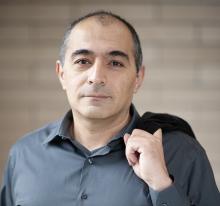Introducing CMES Director - Nader Hashemi
How do you see your work fitting into a Korbel Institute for Comparative and Regional Studies (ICRS) with a focus on labor, democracy, and the Global South?
From our inception, the Center for Middle East Studies has been focused on the themes of democracy and human rights. Thus, the new focus of ICRS on labor, democracy, and the Global South fits very nicely with our previous work. In many ways, it is perfectly consistent with what we have been doing for the last 10 years. We hope to continue to pursue research and advance programming that amplifies the themes of human rights, social movements, and democracy, focusing on the Middle East and the broader Arab-Islamic world.
How does your positionality as a Canadian of Iranian descent shape your work as director of the Center for Middle East Studies?
My ethnic background as a child of immigrant parents gives me a foot in both worlds - a foot in the world of my parents and larger extended family, which is rooted in the Middle East, and a foot in the Western world where I grew up. The second part of the answer is that my background in Canada gives me a more global perspective and sensitivity to, and understanding of, the problems of our world that often gets lost in the United States by an audience that is very much focused on US national security concerns and debates which are a byproduct of America's superpower status. While I am deeply ensconced in US foreign policy debates, I am also aware of and deeply sensitive to non-Western perspectives on global problems, especially those emanating from the Global South.
What advice would you have to students, activists, and policymakers in terms of building solidarity between North and South?
Always exercise humility. Do not presuppose you know the answers in advance in terms of how to help people in other parts of the world who are struggling for dignity and democracy. If you are serious about solidarity work and really want to make a difference, you have a moral imperative to first consult with people on the ground in the Global South and ask them for guidance on how to best help them in their struggles. My rule of thumb for international solidarity is to follow this framework. Always consult with organically connected grassroots activists and actors in the Global South. Take your cues from them and seek guidance from those on the frontlines of the battle before initiating acts of solidarity.
